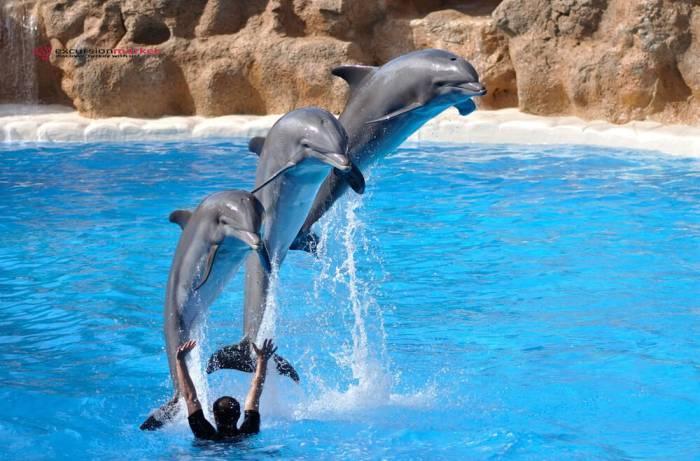Animal rights activists raise concern over dolphinariums
ISTANBUL

Animal rights activists and environmentalists have demanded the closure of dolphinariums, stating that dolphins, which have an average life span of 30 years, can only live up to five years in captivity.
With nine parks harboring 50 dolphins, Türkiye is home to the highest number of dolphinariums among European countries. Dozens of volunteers and nongovernmental organizations are trying to close these parks, claiming that dolphins get tortured there, contrary to the dolphin park operators.
“Dolphinariums, just like zoos, train animals by beating, battering and swearing,” said Öykü Yağcı, spokesperson of the Freedom for Dolphins Platform. She noted that between 1970 and 2010, over 70 dolphinarium accidents occurred worldwide, of which 15 resulted in the death of either the animals or their trainers.
“Dolphins, who refuse to live in captivity, lose their lives due to chronic stress, as their immunity decreases,” Yağcı added.
She also claimed dolphins, accustomed to swimming and hunting for miles in the sea, are fed on dead fish in chlorinated pools.
“There are not only dolphins in dolphinariums, but also sea lions, white whales and seals, which normally live in arctic regions, and they are tortured by being kept in small places with bad conditions,” Yağcı said.
Melisa Sevim, a former dolphin trainer, said she quit her job after witnessing dolphins suffering and mistreating in the dolphinarium she worked for a while.
“It is also possible to swim with dolphins in their natural environment,” Sevim said, urging people to prefer ships and boats tasked with observing dolphins and whales.
Dolphinariums were given the right to work for 10 more years with the new law, according to Ahmet Kemal Şenpolat, the head of the Animal Rights Federation (HAYTAP). “Those with bad conditions are penalized with ridiculous amounts, such as 25,000 Turkish Liras [$1,380].”
“We applied to the International Court of Justice for Animal Rights for their closure,” he added.
But dolphinarium operators argue that these claims are unfounded, as a dolphinarium in Istanbul replied to the allegations on its website.
“The reason why marine mammals are fed by frozen fish in dolphinariums is there are no intestinal worms, helminths, in the frozen fish,” officials said.
The water volume of the pools is adjusted in accordance with the living standards of bottlehead-type dolphins, cared for in dolphinariums, as they prefer to live in bays and close to the shore, they claimed.
It was said in the statement that the reason why the dolphins living in nature swim for kilometers is not their need for swimming but the search for food.
Regarding allegations of physical abuse, “Positive reinforcement is the only training method applicable to marine mammals,” they said, adding that the concepts of depression and suicide belong to human psychology.
According to the prices on this website, watching a dolphin show costs 750 liras ($41) per person, while one has to pay 1,400 liras ($77) for a VIP seat.
On the other hand, couples have to spend 2,800 liras ($154) for a marriage proposal to be made while watching the show from the VIP seat, and 5,000 liras ($276) if the proposal is to be made during the swimming.
Therapy sessions for the disabled are also held at this dolphinarium.
“Dolphinariums charge for sessions that have no medical basis, calling it therapy. Dolphins, which have a very long life expectancy in nature, lose their lives in a short time under these conditions,” said Nesrin Çıtırık, the head of HayKonfed, a federation of animal protection groups.
The latest controversial incident happened in a dolphinarium in the southwestern province of Muğla’s Marmaris district on July 24, in which a dolphin named “Splash” lost its life, the fourth such case in the park.
After the incident, animal rights activists demanded the park’s closure but couldn’t get any results.
Türkiye has four dolphinariums in the southern province of Antalya, two each in Istanbul and Muğla, and one in the Aegean province of Aydın.
















